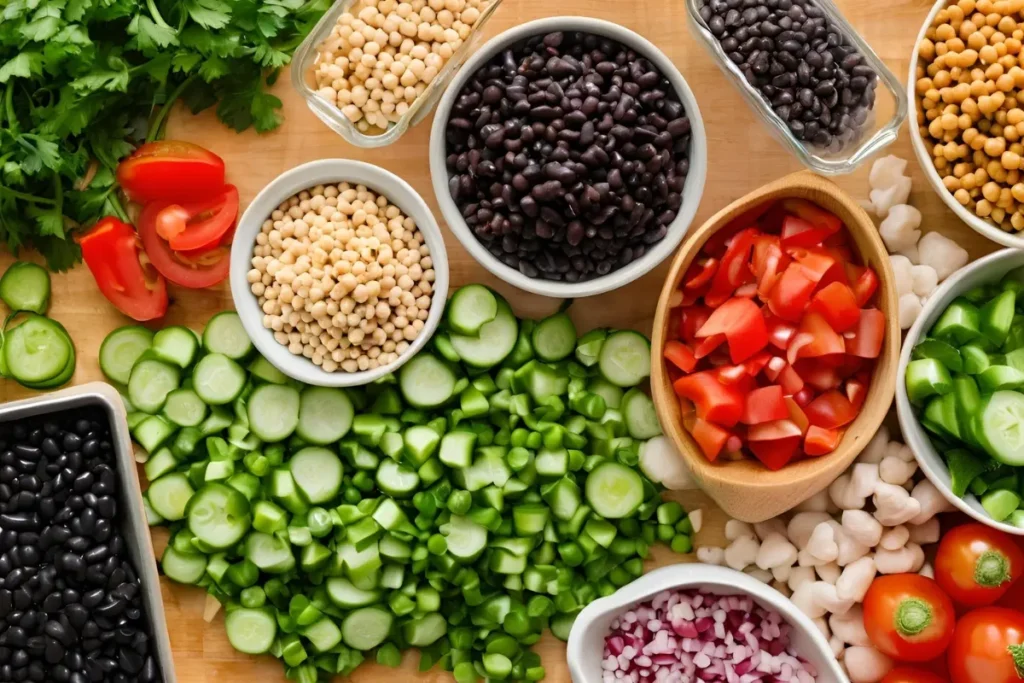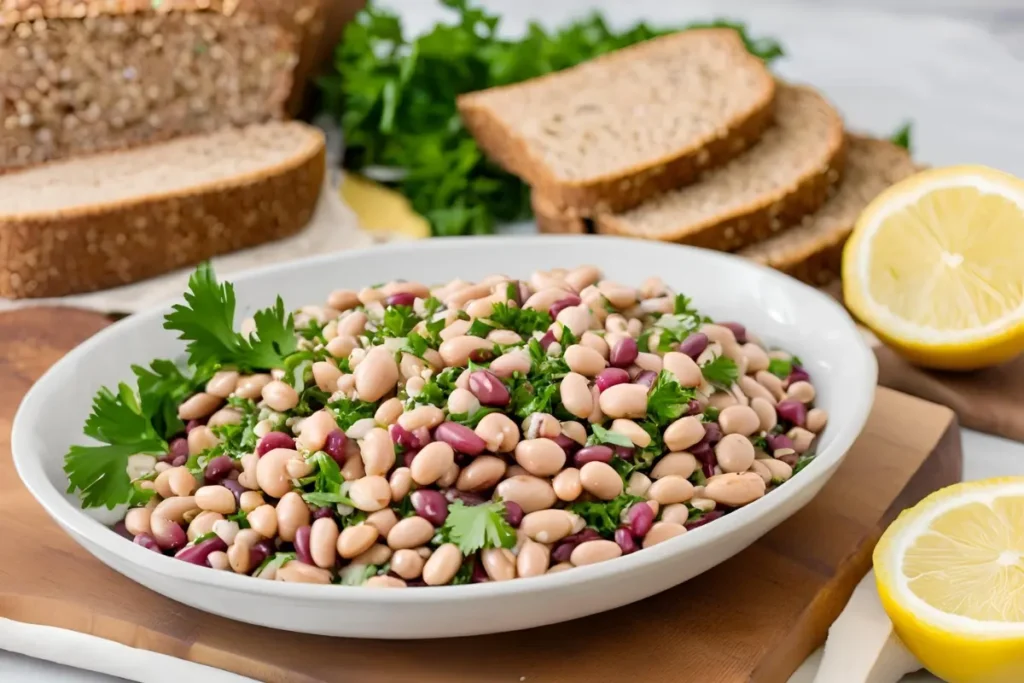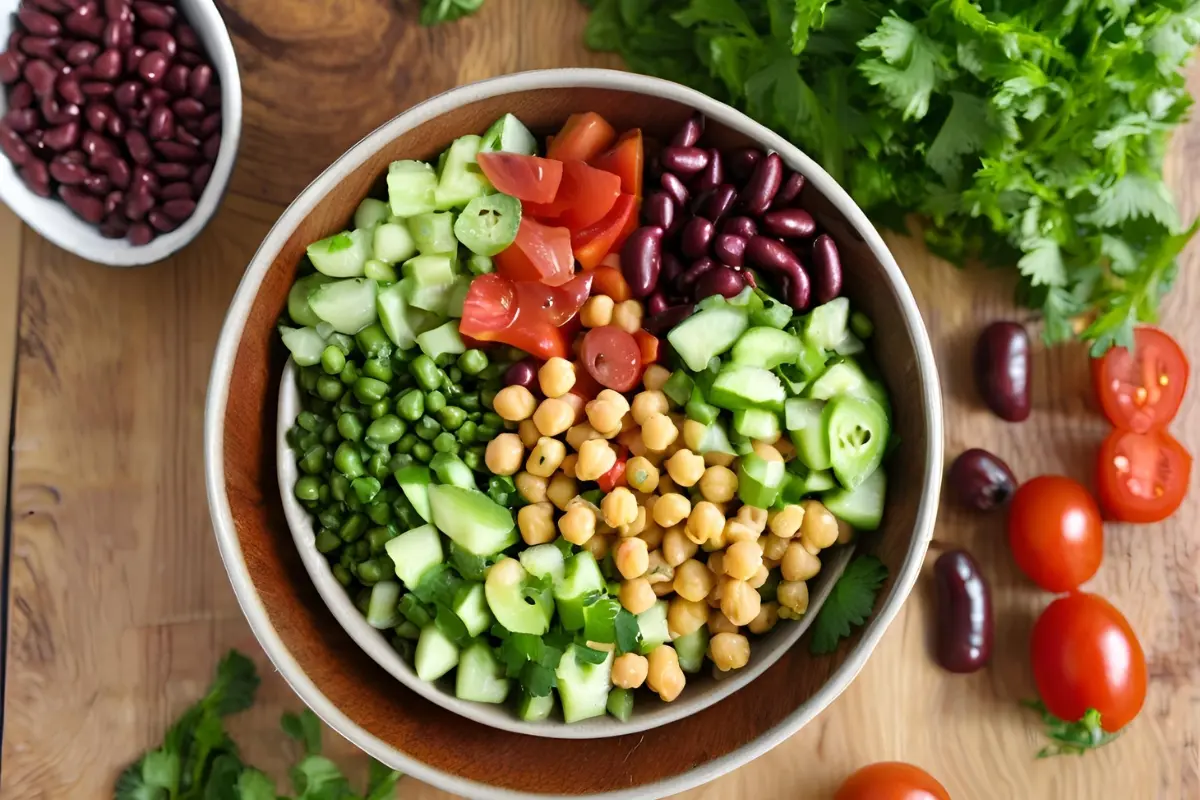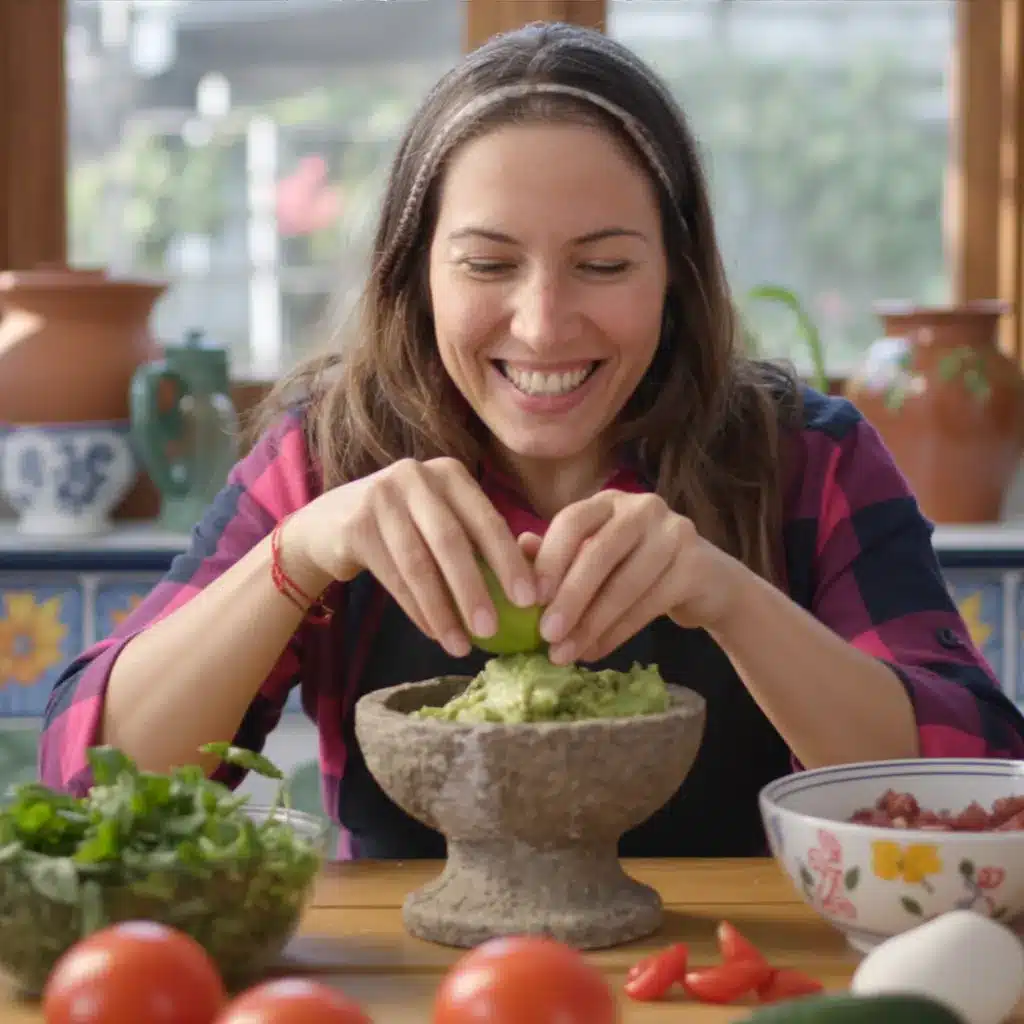Dense bean salad might just be the unsung hero of quick, wholesome meals. The first time I tossed together chickpeas, black beans, and crisp veggies, I didn’t expect it to taste so hearty—and keep me full all afternoon. Whether you’re meal prepping for the week, looking for a meat-free protein boost, or just craving something fresh with a little bite, this salad delivers flavor, nutrition, and versatility in one colorful bowl. Let’s dig into why it’s so good for you and how to make it your own.
Why Are Dense Bean Salads Popular Today?
Nutritional Value of a Protein-Packed Bean Salad
Protein-packed bean salads are celebrated for their exceptional nutrition and convenience. These salads combine protein, fiber, and essential nutrients in a way that is both satisfying and easy to prepare. Each serving of a protein-packed bean salad offers significant amounts of plant-based protein, which supports muscle repair and overall energy levels.
Moreover, beans are packed with complex carbohydrates, which provide slow-releasing energy, helping you stay active and focused throughout the day. They are also rich in micronutrients like iron, magnesium, and potassium, all of which play vital roles in maintaining optimal bodily functions. This nutritional profile makes protein-packed bean salads ideal for vegetarians, vegans, and anyone looking for a balanced and wholesome meal.
In addition to their health benefits, these salads are incredibly versatile. You can customize them with various vegetables, herbs, and dressings to suit different dietary needs and taste preferences. Whether you’re meal prepping, planning a family dinner, or looking for a quick lunch, this dish fits seamlessly into any meal plan. Consequently, the popularity of protein-packed bean salads continues to grow as more people recognize their value as a nutritious, plant-based meal option
The Role of Beans in a Balanced Diet
Beans are a cornerstone of many diets around the world, and for good reason—they are nutritional powerhouses. For one, beans provide a high-quality source of plant-based protein, making them essential for individuals who avoid meat or are looking to reduce their consumption of animal products. This is why a protein-packed bean salad is such a popular choice for those seeking a nutritious and satisfying meal.
In addition, beans are loaded with dietary fiber, which promotes digestive health and helps regulate cholesterol levels. When included in a protein-packed bean salad, they also contribute to a feeling of fullness, making it a perfect option for weight management.
Their low glycemic index makes beans an excellent choice for maintaining stable blood sugar levels, which is particularly beneficial for people managing diabetes or trying to avoid energy crashes. Furthermore, beans are rich in antioxidants and phytonutrients, which help protect the body from oxidative stress and inflammation. These qualities make a nutrient-dense bean salad a great addition to any balanced diet.
A protein-packed bean salad simplifies the process of incorporating beans into your meals regularly. By combining multiple types of beans—such as chickpeas, kidney beans, and black beans—with fresh vegetables and a flavorful dressing, you can create a dish that is both balanced and satisfying. Additionally, the long shelf life and affordability of beans make this type of salad an accessible option for individuals and families on a budget.
Historical Origins of Bean Salads
How Dense Bean Salad Got Its Name
The term “dense” in a protein-packed bean salad refers to the dish’s richness in both nutrients and flavor. Historically, bean salads have been staples in various cuisines due to the availability, affordability, and versatility of beans. For instance, Mediterranean cuisine often features chickpea-based salads, while Latin American dishes frequently incorporate black beans. These traditional recipes laid the foundation for what we now recognize as a nutrient-rich bean salad.
The modern name likely evolved to emphasize the dish’s impressive nutritional profile. The combination of various beans, vegetables, and dressings in a protein-packed bean salad creates a meal that is not only filling but also loaded with essential nutrients. Moreover, the term “dense” reflects the salad’s hearty texture and robust flavor, distinguishing it from lighter, leafy green salads.
Today, a protein-packed bean salad is a popular choice for those seeking healthy, plant-based meals that are both flavorful and satisfying. Its name highlights its nutritional density and the rich culinary history that makes it a timeless yet modern addition to any diet.
Core Concepts & Key Insights
Understanding the Benefits of a Dense Bean Salad
Rich Nutritional Profile: Protein, Fiber, and More
Dense bean salad is often referred to as a nutritional powerhouse, and for good reason. Each serving provides a robust combination of macronutrients and micronutrients that support overall health.
- Protein: Beans like chickpeas, kidney beans, and black beans are excellent sources of plant-based protein. Protein is essential for building and repairing tissues, making it a key nutrient for active individuals and those on plant-based diets.
- Fiber: A high fiber content is one of the defining features of dense bean salads. Fiber supports digestive health by promoting regularity and feeding beneficial gut bacteria. Furthermore, it helps you feel fuller for longer, which can be beneficial for weight management.
- Micronutrients: Beans are rich in essential vitamins and minerals, such as iron, magnesium, potassium, and folate. These nutrients play critical roles in energy production, muscle function, and red blood cell formation.
This combination of nutrients not only makes dense bean salad a wholesome choice but also helps reduce the risk of chronic illnesses like heart disease and type 2 diabetes. As a result, adding this salad to your diet can have both immediate and long-term health benefits.
How Dense Bean Salad Supports Gut Health
One of the standout benefits of a protein-packed bean salad is its ability to promote gut health. The high fiber content found in beans, particularly soluble fiber, acts as a prebiotic, feeding the beneficial bacteria in your gut. These bacteria are essential for digestion, immune function, and even mental health, making a nutrient-rich bean salad an excellent addition to your diet.
Additionally, the insoluble fiber in beans helps maintain regular bowel movements and prevent issues like constipation. For individuals with sensitive digestion, rinsing canned beans or soaking dried beans can reduce compounds that may cause bloating or discomfort. By including a protein-packed bean salad regularly in your meals, you can support a healthier gut microbiome, which is closely linked to overall well-being and improved health outcomes.
Comparing Fresh vs. Canned Bean Salads
Pros and Cons of Using Canned Beans
Canned beans are a convenient and time-saving option for preparing dense bean salads. However, they come with their own set of advantages and disadvantages:
Pros:
- Time-Saving: Canned beans are pre-cooked and ready to use, significantly reducing preparation time.
- Long Shelf Life: They are easy to store and accessible when fresh beans are unavailable.
- Nutritional Value: While slightly less nutritious than fresh beans, canned beans still retain most of their protein, fiber, and mineral content.
Cons:
- High Sodium Content: Many canned beans contain added salt, which can increase sodium intake. Rinsing canned beans under running water can reduce their sodium content by up to 40%.
- Flavor and Texture: Freshly cooked beans often have a firmer texture and richer taste compared to canned beans.
While both fresh and canned beans are suitable for dense bean salads, understanding these differences helps you choose the best option for your needs and preferences.
How Dense Bean Salads Fit Into Daily Meal Plans
Dense bean salads are highly versatile, making them an excellent choice for any meal of the day. For example, they can be:
- A Hearty Lunch: Pair a dense bean salad with whole-grain bread or a light soup for a balanced midday meal.
- A Light Dinner: Serve the salad as a main dish or as a side with roasted vegetables or grilled proteins.
- A Meal Prep Option: Dense bean salads store well, making them ideal for preparing in advance for a busy week.
The adaptability of dense bean salads allows you to incorporate them into various dietary routines. Moreover, their nutritional profile ensures that you’re getting a well-rounded meal every time.
Addressing Common Questions About Dense Bean Salads
Why Is It Called a Protein-Packed Bean Salad?
The name protein-packed bean salad reflects its rich concentration of nutrients and wholesome ingredients. Unlike lighter, leafy salads, this dish is hearty and satisfying, with beans as the primary component. These beans provide an excellent source of plant-based protein and fiber, making the salad both nourishing and filling. Additionally, the term “protein-packed” captures the robust texture and full-bodied flavor of the salad, making it a nutritious and indulgent choice for any meal.
Key Ingredients That Add Density and Nutrition

A protein-packed bean salad typically includes a variety of beans, such as chickpeas, kidney beans, and black beans, to maximize its nutritional benefits. Complementary ingredients like diced vegetables (e.g., cucumbers, tomatoes, and bell peppers), fresh herbs (like parsley or cilantro), and zesty dressings further enhance its flavor and health benefits. For added density and variety, ingredients like quinoa, avocado, or nuts can be incorporated. These additions boost the salad’s healthy fats, protein, and texture, creating a well-rounded and satisfying meal.
A protein-packed bean salad is enhanced by the addition of complementary ingredients like cucumbers, tomatoes, and bell peppers. For inspiration on perfecting your salad recipes, explore these Perfect Pasta Salad Tips for a creative twist.
Practical Applications & Conclusion
Incorporating Dense Bean Salad Into Your Diet
Simple Recipes for Delicious Dense Bean Salads
Dense bean salads are versatile and can be tailored to suit a variety of preferences. Below are two simple recipes to get started:
Classic Mediterranean Bean Salad
- Ingredients: Chickpeas, cannellini beans, diced cucumbers, cherry tomatoes, red onion, fresh parsley, olive oil, and lemon juice.
- Steps: Combine beans and chopped vegetables in a bowl. Whisk olive oil, lemon juice, salt, and pepper for the dressing. Toss everything together and serve chilled.
Southwest-Style Bean Salad
- Ingredients: Black beans, kidney beans, sweet corn, diced avocado, bell peppers, lime juice, and cilantro.
- Steps: Mix beans, corn, and vegetables. Add lime juice, olive oil, cumin, and chili powder for a zesty dressing. Gently toss and serve fresh.
Both recipes showcase how easily dense bean salads can be adapted for different flavor profiles.
Tips for Enhancing Flavor and Texture
To make your dense bean salad even more enjoyable, follow these tips:
- Use Fresh Ingredients: Opt for fresh herbs and ripe vegetables to elevate the flavors.
- Experiment with Dressings: Add spices like smoked paprika or a splash of vinegar to create depth.
- Include Crunchy Add-Ins: Nuts, seeds, or croutons can provide a satisfying contrast to the creamy texture of beans.
Additionally, marinating the beans in the dressing before assembling the salad can infuse them with more flavor.
How to Choose the Best Beans for Your Salad
The choice of beans significantly impacts the flavor and nutritional profile of your salad. Consider the following:
- Chickpeas: Ideal for a creamy texture and mild flavor.
- Black Beans: Rich in antioxidants and offer a robust taste.
- Lentils: A softer option with high protein content.
- Cannellini Beans: Perfect for Mediterranean-style salads due to their buttery flavor.
Using a combination of beans can add variety and maximize the nutritional benefits.
Balancing your intake with other nutritious meals ensures variety and supports overall health goals.
The Long-Term Health Benefits of Dense Bean Salads
Can You Eat a Protein-Packed Bean Salad Every Day?

Eating a protein-packed bean salad daily can be a healthy and sustainable habit, provided it’s part of a balanced diet. Beans in the salad offer essential nutrients like plant-based protein, fiber, and iron, which support energy, digestion, and overall health. However, consuming large quantities may lead to bloating or digestive discomfort for some individuals. To avoid this, pair your protein-packed bean salad with diverse food groups, such as whole grains, fresh vegetables, or lean proteins. Additionally, rotating beans and other ingredients keeps the meal exciting and prevents monotony in your diet.
To ensure variety, consider pairing your protein-packed bean salad with other dishes like grilled chicken or whole-grain bread. If you’re looking for ideas, this Burger Bowl Recipe offers another protein-rich, balanced meal option.
Balancing a Protein-Packed Bean Salad in a Weekly Diet
Incorporating a protein-packed bean salad into your weekly meal plan is simple and versatile. You can enjoy it as a side dish, main course, or even a snack depending on your needs:
- Lunch: Pair the salad with whole-grain bread or roasted vegetables for a satisfying midday meal.
- Dinner: Serve alongside grilled chicken, fish, or tofu to create a protein-rich, balanced dinner.
- Snacks: Enjoy a smaller portion of the salad as a light, nutritious snack to keep hunger at bay.
By varying how you serve your protein-packed bean salad throughout the week, you can enjoy its benefits while keeping your meals interesting and balanced.
Real-Life Stories: How People Transformed Their Diets
Many individuals have shared how incorporating dense bean salads into their routines has positively impacted their health. For instance, busy professionals have found it easier to maintain energy levels and manage weight with the convenience of pre-prepared bean salads. Others have reported improved digestion and a reduced reliance on processed snacks by replacing them with this nutrient-dense meal.
These real-life examples demonstrate how small dietary changes, like adding dense bean salad, can lead to significant long-term benefits.
Trends in Bean Salad Recipes: What’s Next?
As food trends evolve, bean salads continue to gain popularity due to their health benefits and adaptability. Emerging trends include:
- Global Flavors: Incorporating spices and ingredients from Middle Eastern, Indian, or African cuisines.
- Superfood Add-Ins: Adding chia seeds, quinoa, or kale for enhanced nutrition.
- Sustainable Cooking: Using locally sourced or organic beans and vegetables to minimize environmental impact.
These trends showcase how dense bean salads remain a timeless yet modern dish that can cater to evolving tastes and dietary needs.
Closing Thoughts on Dense Bean Salads
Recommended Resources for Learning More About Beans
For those interested in exploring beans further, here are some recommended resources:
- Cookbooks: Books like “The Bean Cookbook” provide detailed recipes and tips.
- Online Communities: Platforms like food blogs or forums can offer inspiration and support for trying new bean-based dishes.
- Nutritional Studies: Research articles on the health benefits of legumes deepen understanding and appreciation of their role in a balanced diet.
Dense bean salads are more than just a meal—they’re a gateway to a healthier, more sustainable way of eating.

Protein-Packed Bean Salad (Dense & Delicious)
Ingredients
Method
- In a large bowl, combine chickpeas, black beans, and kidney beans. Give them a gentle toss — they’re the star of the show here.
- Add cucumbers, cherry tomatoes, bell pepper, red onion, and fresh herbs. It’s already looking colorful and gorgeous.
- In a small jar or bowl, whisk together olive oil, lemon juice, red wine vinegar, salt, pepper, and cumin or smoked paprika if using.
- Pour the dressing over the salad and toss gently until everything is coated in zesty goodness.
- Taste and adjust seasoning — a little extra lemon or pinch of salt can make it pop.
- Serve right away or let it chill for 30 minutes so the flavors mingle. Grab a fork — this is plant-powered comfort in a bowl.
Nutrition
Notes
Tried this recipe?
Let us know how it was!FAQs
Why Are Protein-Packed Bean Salads Good for You?
A protein-packed bean salad is loaded with plant-based protein, fiber, and essential nutrients. It supports muscle growth, aids digestion, and provides long-lasting energy. Additionally, it’s versatile and easy to customize, making it a perfect choice for any meal.
Is Canned Bean Salad the Same as a Protein-Packed Bean Salad?
While canned beans can be used, the nutritional benefits of a protein-packed bean salad depend on fresh, wholesome ingredients. Rinsing canned beans helps reduce sodium, ensuring a healthier salad. Adding fresh vegetables and a homemade dressing elevates its quality.
Can You Eat a Protein-Packed Bean Salad Every Day?
Yes, eating a protein-packed bean salad daily is healthy if balanced with other food groups. Its high protein and fiber content make it a satisfying meal. To keep it interesting, rotate different beans and dressings.
What Beans Are Best for a Protein-Packed Bean Salad?
Chickpeas, black beans, and kidney beans are excellent choices for a protein-packed bean salad. Chickpeas add creaminess, black beans offer antioxidants, and kidney beans provide fiber and iron. Mixing beans maximizes both flavor and nutrition.
Are Protein-Packed Bean Salads Good for Weight Loss?
Absolutely! A protein-packed bean salad is low in calories but rich in nutrients. The high protein and fiber content helps control hunger and reduce cravings, making it ideal for weight management.
How Can You Store a Protein-Packed Bean Salad?
Store your protein-packed bean salad in an airtight container in the fridge for up to 4 days. To maintain freshness, keep the dressing separate until ready to eat. Add soft ingredients like avocado just before serving.
What Unique Add-Ins Can Enhance a Protein-Packed Bean Salad?
Add roasted veggies, nuts, seeds, or grains like quinoa to your protein-packed bean salad. Fresh herbs, exotic spices, and dried fruits can also create exciting flavor profiles while boosting nutrition.
Stay Connected with Feel the Recipes
Love cooking and sharing good food? Let’s stay connected! Clara posts new recipes, helpful tips, and little moments from her kitchen every day to keep you inspired.
Join our growing community of home cooks who believe food is meant to be simple, joyful, and shared around the table.
👉 Facebook: Follow us on Facebook
📌 Pinterest: Explore our boards for endless recipe inspiration
🐦 X (Twitter): @feeltherecipes for quick tips and updates
📸 Instagram: @feeltherecipes for fresh photos and behind-the-scenes peeks
Let’s keep cooking, creating, and sharing. Whether you’re here for classic comfort food or something new to try, we’re just a click away.
